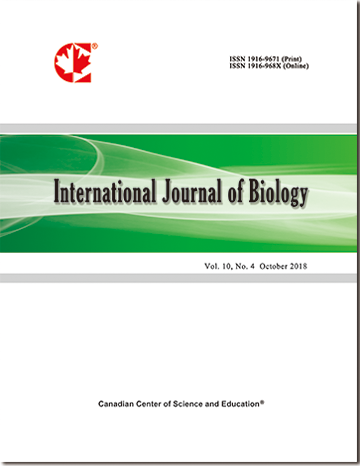Incidence of Fungi in Water Springs of Samahni Valley, District Bhimber, Azad Kashmir, Pakistan
- Tanveer Hussain
- Muhammad Ishtiaq Ch
- Altaf Hussain
- Tariq Mehmood
- Kishwar Sultana
- Muhammad Ashraf
Abstract
Fungi have great impacts on socio-economic conditions and health of human beings. In current research, incidenceof mycoflora associated with different water springs of Samahni Valley (SV), district Bhimber, Azad Kashmir was
screened by using Plating and Baiting Techniques. The pH value of water samples ranged from 5.5 to7.5. The
minimum and maximum temperature of sampled springs was between 18oC–36oC. Total 33 fungal specimens
belonging to 21 different species were isolated from different analyzed samples by employing two approaches. In
Baiting Technique (BT) 13 species and in Direct Plate Method (DPM) 8 species were isolated, respectively.
Highest number of mycoflora was determined by BT, followed by DPM. Aspergillus sp. was dominant species
followed by Cephalosporium sp. and Botrytis sp. found in drinking water of springs. The highest number of
species was found in Parshala sample (6 spp) which proves that place has favorable conditions for flourishing of
fungi. The present study depicts that various springs of SV have different number of mycoflora depending on soil
type, temperature, altitude and neighboring flora. Furthermore, ethnobotanical study of the area indicates that these
pathogenic species present in spring water cause many diseases in plants, animals and human beings, hence
hampering health and economic status of inhabitants. It is recommend that precautionary and practical measures
should be formulated and implemented before using water of these springs for drinking or other agriculture
purposes.
- Full Text:
 PDF
PDF
- DOI:10.5539/ijb.v2n2p94
Index
- ACNP
- AGRICOLA
- BASE (Bielefeld Academic Search Engine)
- CAB Abstracts
- CiteFactor
- CNKI Scholar
- CrossRef
- DTU Library
- Elektronische Zeitschriftenbibliothek (EZB)
- Excellence in Research for Australia (ERA)
- Google Scholar
- Infotrieve
- LIVIVO (ZB MED)
- LOCKSS
- Max Planck Institutes
- MIAR
- PKP Open Archives Harvester
- Qualis/CAPES
- ResearchGate
- ROAD
- SafetyLit
- SHERPA/RoMEO
- Technische Informationsbibliothek (TIB)
- Universe Digital Library
- WorldCat
Contact
- Ryan JonesEditorial Assistant
- ijb@ccsenet.org
